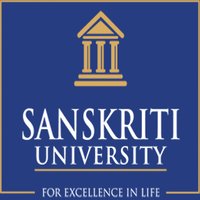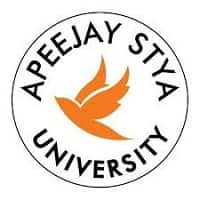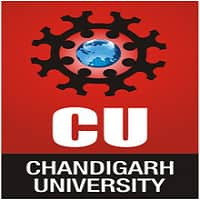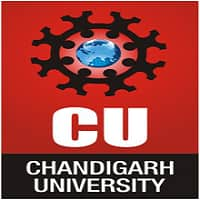Sharda University Admissions 2025
North India's Largest Educational Group | NIRF Ranked 86 | NAAC A+ Grade | Highest Package 1.6 Cr | Scholarships upto 100% | Last Date: 15th Apr'25
M.Sc B.Ed is an integrated dual degree programme. It combines both M.Sc. and B.Ed., hence it is named as M.Sc B.Ed dual degree course. M.Sc stands for Master of Science, whereas B.Ed. stands for Bachelor of Education. Well, they both are different courses, but as of now, it is possible to pursue an M.Sc B.Ed integrated course because of the University Grants Commission (UGC).
M.Sc involves specialisation in any Science fields such as Physics, Biology, Chemistry, Botany, Zoology, Biotechnology, Mathematics, Microbiology, Environmental Science, Life Sciences and many more. In contrast, B.Ed is the Bachelor of Education, which is not an undergraduate degree, and it is specifically done by candidates who want to take teaching as a profession. M.Sc B.Ed integrated course not only saves your time but also gives you a perfect profession just after completing it.
M.Sc B.Ed stands for Master of Science- Bachelor of Education. It is an integrated dual degree programme that combines M.Sc. (Master of Science) and B.Ed. (Bachelor of Education). If you pursue them separately, you will cover B.Ed in two years and M.Sc. in two years, so you will spend four years. But with this integrated programme you can cover M.Sc and B.Ed in three years.
North India's Largest Educational Group | NIRF Ranked 86 | NAAC A+ Grade | Highest Package 1.6 Cr | Scholarships upto 100% | Last Date: 15th Apr'25
Particulars | Values |
Course Level | Postgraduate |
Full Form | M.Sc B.Ed |
Duration | Three years |
Eligibility | An aggregate score of 50 per cent in Bachelor’s degree in Science related courses from a recognised University. |
Admission Process | Common Entrance Test |
Job profiles | Teacher, Counsellor, Educational Administrator, Educational Researcher |
Top recruiters | Schools, Colleges, Various educational institutions |
Course Fee | Rs. 10,000 to Rs. 1,00,000 |
Average Salary | Rs. 5 Lakhs |
The eligibility for M.Sc B.Ed dual degree programme involves similar eligibility criteria for enrollment in M.Sc and B.Ed courses. The candidates with the following qualifications are eligible for an M.Sc B.Ed integrated course:
Eligibility Criteria
Candidates must complete 10+2 in Science Stream with an aggregate of 50 per cent marks from a recognised educational board.
Candidates need to complete a Bachelor's degree in Science (B.Sc) related programme with an aggregate of 50 percent from a recognised university.
For SC/ ST/ OBCs and differently-abled candidates, there is a concession of marks in the minimum eligibility marks.
If a candidate wants to pursue this integrated course in Physics, Mathematics, Chemistry, Botany, Zoology, or any other specialisation, then they must have a Bachelor's degree related to that subject.
As this is a postgraduate course, there is no age limit. But there are a few colleges that require an age of 19 plus for this integrated course.
The Government of India's policy and guidelines regarding the University Grants Commission related to reservation of seats for candidates belonging to SC/ ST/ OBC and differently-abled candidates is implemented.
Many colleges require you to score at least 50 per cent in the common entrance examination.
As discussed above, to get admission an M.Sc B.Ed integrated course, you have to appear for the common entrance test or other specific test depending upon the University.
You can easily prepare for these entrances online by searching for the syllabus and some sample papers or previous question papers available on the internet. This will really help you a lot in scoring good marks at the entrance.
The universities will reveal notification when it is the admission time of the year. Once they reveal the official notification on their website, you can go through all the details and fill in the admission forms.
You will get to know about the program, the fee structure, the number of seats available and reserved seats, curriculum details, eligibility criteria, and much more on the website.
Well, after giving the entrance exam, your admission depends upon your score and the minimum marks that are required for the university. And if you get into any of the universities, then you will receive a notification stating further procedures.
Remember, every university will have a different procedure for admission and also a different eligibility criterion.
Also Read: Education Certification Courses
Like most of the postgraduate courses, M.Sc B.Ed dual degree course has a common entrance examination conducted by central universities based on which they give you admission. There are a few universities that conduct their examination and will give you admission based on your scores. To get admission for this integrated course, you have to fill in the form of the entrance exam on the website of Universities, and based on the cut-offs of the colleges and your scores, you will get admission.
Exam | Full Form | Conducting Body | Application |
|---|---|---|---|
Common University Entrance Test (PG) | National Testing Agency (NTA) | ||
Lovely Professional University National Entrance and Scholarship Test | Lovely Professional University | ||
Indraprastha University Common Entrance Test | Guru Gobind Singh Indraprastha University |
Opting for M.Sc B.Ed integrated course has several benefits. Read further to find out why opting for this course can be beneficial for you.
Dual Degree: The course provides students with dual degrees upon successful completion. Apart from saving a year, the course offers better job opportunities.
Saves a Year: With a dual degree, you end up saving an academic year. Also, there is no need to apply for a B.Ed degree separately.
Job Opportunities: There are numerous job opportunities after the successful completion of the course. One can find a job in various government institutions.
In M.Sc B.Ed integrated course, you will be studying both the M.Sc. and B.Ed. courses, one that is related to Science and the other, which is specifically for turning you into a teacher. So, you need to have skills that are required for pursuing both programmes which include-
Communication Skills | Interpersonal Skills |
Organising Skills | Time Management |
Patience | Research Skills |
Problem-Solving Skills | Attention to Detail |
Leadership Skills | Teamwork |
These are some of the skills that you must have to pursue this integrated course, as you will be handling two courses at a time, so you must also possess qualities that are required for both.
A cut-off is based on the entrance examination or previously passing examination. It is the demand of minimum mark required by the institute to provide admission in the academic programme running in the college. Candidates who secure more or equivalent to the cut-off are eligible for further participation in the admission process and get the seat allotment.
Just like the fee of all the courses varies across Universities; similarly, the fee structure of M.Sc B.Ed also varies. Government universities have very low fees for this course, while private universities have a high fees as compared. On average, the Government Universities will have a fee of around 10 to 15 thousand rupees per semester. At the same time, private universities can take 30 thousand rupees or above per semester. Universities will not ask you to pay the whole amount at a time as you can pay some at the time of registration and some later on. Again it depends on the University how and when they will take the fees.
Are you looking for top education colleges in your city? No need to get worked up, we have provided below a table for your assistance so that you can easily find the top colleges offering education programmes in your city.
As you know by now, this integrated programme covers both courses, so it is obvious that it will cover the syllabus of both.
Semester 1 | Semester 2 |
| Abstract Algebra | Linear Algebra |
| Real Analysis | Complex Analysis |
| Mathematical Programming | Topology |
| Qualitative Theory of ODE | PDE |
| Basics of Education | Philosophy of Mathematics |
| Senior Secondary Education in India: Status, Challenges & Strategies | Learner and Learning |
Semester 3 | Semester 4 |
| Functional Analysis | Mathematical Modeling |
| Numerical Analysis | Dynamics of Rigid Body |
| Measure Theory & Integration | Elective Paper |
| Elective Paper | Learning Assessment |
| Teaching Approaches and Strategies | Pedagogical Analysis of Senior Secondary School: Mathematics |
| Pedagogy of Mathematics | Classroom Organization & Management |
Semester 5 | Semester 6 |
| Internship-I | Project/Dissertation in Mathematics/Elective/Open Elective |
| Internship-II | Project/Dissertation in Education |
This is an integrated programme, so this course's main focus will be on both courses. You will study the main things required for becoming a professional teacher and all the things from basic to advanced in the subject that you choose to do your specialisation.
The B.Ed part of this programme will cover the following topics:
Basic of Education
Learning and Teaching
Teaching Approaches and Strategies
Assessment for Learning
Understanding Disciplines and Subjects
Senior Secondary Education in India
Pedagogy of the subject that you have chosen for specialisation
Apart from these few topics, you will also cover the curriculum of the subject that you will choose to do your specialisation, which will depend upon the college to provide admission. The syllabus will vary across universities, as they follow their curriculum, but we have mentioned a few topics to give an idea.
Specialisations are offered under M.Sc. course. We have listed below major M.Sc. specialisations.
Applied Electronics | |
Electronics and Instrumentation |
After completing M.Sc B.Ed dual degree course, one can get employed in private as well as government institutes with an attractive salary package. One can also establish his or her own institute. There are several finance options available from banks and the government. There is also an option to pursue higher studies in the field of your specialisation. Master of Education (M.Ed) is the course that can be pursued by the students after B.Ed. One can also pursue Ph.D after the completion of M.Ed.
Once you complete your integrated M.Sc B.Ed programme, you can enter into any education field to make your career. As mentioned in the starting, this is the best-integrated programme for becoming a teaching expert in a specialisation.
Teacher - Teaching is one of the most respected professions as they play an essential role in developing the country's future as they teach and help students learn and grow to become good people in life. When you are doing M.Sc along with B.Ed as in this integrated programme, you will become a professional teacher in the subject that you have specialised. You can apply for a junior lecturer or a professor at a college in your specialisation field.
Not only are there private job options available for you, but also there are many government jobs in the field of teaching. You can teach in a private or a reputed government school with a good salary. Besides teaching in schools or colleges, you can also open your coaching center, or give tuitions in reputed institutions.
Apart from becoming a teaching expert, there are a few more career options available for you like:
You can get a job as a counsellor where you will be responsible for guiding other students to achieve their academic and personal goals
You can also become an educational administrator who is responsible for managing the administration of the school which involves hiring other teachers as well.
You can also become an educational researcher where you will be researching a particular subject you have specialised in and can also develop a research paper.
These were the few current common career opportunities that you can go for after completing this integrated programme.
The above career fields are such that they will never end because education will never end, and so giving education. So, being a teacher is a great responsibility as you will help others build their career as well.
Students also liked
Salary will vary depending on the field you are working in and the post you hold. An experienced teacher will have an average salary of about more than Rs. 12 lakhs per annum in a reputed college. While the starting salary will depend upon the sector you are working in. But on average, the starting salary will be somewhere around Rs. 5 lakhs per annum. The salary range of the career opportunities mentioned above are as follows:
Job Profile & Salary in Diploma M.Sc B.Ed
Career Option | Average starting salary per annum |
Teacher | Rs. 3 lakh to Rs. 6 lakh |
Counsellor | Rs. 2 lakh to Rs. 5 lakh |
Educational Administrator | Rs. 3 lakh to Rs. 5 lakh |
Educational Researcher | Rs. 4 lakh to Rs. 7 lakh |
There are plenty of colleges in India that offer B.Ed. There are fewer colleges that offer M.Sc. with integrated B.Ed. Central University of Rajasthan is one of the top government M.Sc B.Ed colleges. It is considered that the academic fee charged by institutes managed by government authorities is quite lesser than private institutes.
Well, the main benefit of this integrated course is that it has a duration of three years only. If you pursue M.Sc and B.Ed separately one after the other, then it will take four years for you to complete (two + two). The other benefit is that you will become a teaching expert in the subject that you will be chosen to do your specialisation after pursuing this programme.
The other similar courses relevant to M.Sc B.Ed are listed below: B.Ed, M.Sc, M.Sc. M.Ed, M.Ed, B.Sc. followed by M.Sc B.Ed.
No, you cannot apply for the M.Sc B.Ed integrated programme because it is specifically for those candidates who have done their Bachelor's degree in Science. But you can apply for B.Ed alone.
M.Sc B.Ed integrated programme's total duration is three years that comprise six semesters, and even a few colleges offer an Internship in the last two semesters.
The best is the Central University of Rajasthan as it offers this integrated programme for Chemistry, Physics, and Mathematics. Plus, they have a very low fee structure.
This provides a range of career aspects in the education line. You can become a teacher in school, college, or any other institute; you can also get a job as a counsellor, Educational Administrator, or Educational Researcher. If you are good at writing, you can also get a job writing research papers and content writing.
As the name suggests, it is an integrated programme of Master of Science and Bachelor of Education. So, without a doubt, it comprises subjects that are related to Science, so you can choose Physics, Chemistry, Mathematics, Botany, Zoology, Biology and a few more depending upon what you had in your Bachelor's degree.
Everyone knows that India has many educational institutes, be it Schools, Colleges, Tuition centres, or Coaching centres. So, there is always a need for a teacher with good qualifications. And as education has no end, this career will never end in India or any other country. Well, yes, there is a huge scope of this integrated programme in India.
we do offer a range of resources for B.Ed entrance exams, including previous year's question papers and sample papers.
If you're looking for B.Ed entrance exam preparation materials, here are some resources you can explore:
- * Previous Year's Question Papers* : Career360 provides previous year's question papers for various B.Ed entrance exams, which can help you understand the exam pattern and difficulty level.
- *Sample Papers*: You can also find sample papers for B.Ed entrance exams on Career360, which can help you practice and assess your knowledge.
- * Online Mock Tests *: Career360 offers online mock tests for B.Ed entrance exams, which can help you simulate the actual exam experience and identify areas for improvement.
To access these resources, you can visit the Career360 website and search for B.Ed entrance exam preparation materials.
Dear
To pursue a B.Ed. in Hindi, you need to follow a few steps. Here’s how you can go about it:
Complete Graduation:
Check Eligibility Criteria:
Entrance Exam:
Apply to Colleges Offering Hindi B.Ed.:
Prepare for the Entrance Exam:
Submit Documents:
If you need help finding specific universities or details on entrance exams, feel free to ask!
In Haryana, several institutions offer integrated B.Sc. B.Ed. programs, combining a Bachelor of Science with a Bachelor of Education over four years. These programs are designed to prepare students for careers in teaching, particularly at the secondary education level.
Notable institutions offering B.Sc. B.Ed. programs in Haryana:
1. Kirorimal College of Education, Sonipat
- Offers a four-year Integrated Teacher Education Program (ITEP) leading to B.Sc. B.Ed., affiliated with Maharshi Dayanand University (MDU), Rohtak.
2. Jagannath University, Jhajjar
- Provides a four-year integrated B.Sc. B.Ed. program, approved by the National Council for Teacher Education (NCTE).
3. Hakeem Harbans Singh New Era College of Education, Sirsa
- Offers a four-year integrated B.Sc. B.Ed. program, approved by NCTE and the Government of Haryana.
4. State Institute of Advanced Studies in Teacher Education (SIASTE), Gurugram and Kurukshetra
- Established in alignment with NEP 2020, these institutes offer B.Sc. B.Ed. (Four-Year Integrated Programme) with an intake of 100 students each.
5. Manav Rachna University, Faridabad
- Offers a B.Sc. B.Ed. integrated program, focusing on developing skilled educators.
Admission process:
- Eligibility: Candidates must have completed 10+2 with a minimum aggregate percentage, typically around 50%, with Physics, Chemistry, and Mathematics/Biology as subjects.
- Application: Admissions are generally based on merit, considering 10+2 examination results. Some institutions may conduct entrance exams or interviews.
- Counseling: Shortlisted candidates may be required to participate in counseling sessions as part of the selection process.
Considerations:
- Accreditation: Ensure the institution is recognized by the National Council for Teacher Education (NCTE) and affiliated with a reputable university.
- Curriculum: Review the program's curriculum to ensure it aligns with your career goals and includes adequate practical teaching experience.
- Placement opportunities: Research the institution's placement records to understand potential employment opportunities after graduation.
For the most accurate and updated information, it's advisable to visit the official websites of the respective institutions or contact their admissions offices directly.
Hi aspirant,
Several colleges in Haryana offer BSc + BEd integrated courses. Here is a list of top colleges
1) Kirorimal College of Education
2) Jagannath University
3) Manav Rachna University
4) Kurukshetra University
5) Central University of Haryana
Best of luck!
BBD University, also known as Babu Banarasi Das University, offers a Bachelor of Education (B.Ed.) course. The program is a two-year full-time professional pre-service teacher education program, divided into four semesters.
The university's School of Education provides a comprehensive education, focusing on academic excellence, teacher competence, and sensitivity. The course aims to develop futuristic teachers with a global vision, emphasizing the importance of teacher education in shaping the future of a nation.
Here are the key highlights of the B.Ed. course at BBD University:
- Duration: 2 years
- Number of Seats: 100
- Eligibility: 50% marks in Bachelor's or Master's degree in Sciences, Social Sciences, Humanities, or Engineering
- Total Tuition Fee: INR 1,21,400
- Semester Fee: INR 30,350
Hope it helps!!

Best innovation and research-driven university of Uttar Pradesh

NAAC A Grade | Trans-Disciplinary Approach | Global Diversity

Ranked #1 Among all Private Indian Universities in QS Asia Rankings 2025 | Scholarships worth 210 CR

Admissions open for B.A + B.Ed & B.Sc + B.Ed | NAAC A+ Accredited
India's Largest University | NAAC A++ | 100% Placements Record | Highest CTC 2.5 Cr PA | 145 + Programmes in 55+ Disciplines | End Date : 15th Apr’25
Ranked amongst top 3% universities globally (QS Rankings)